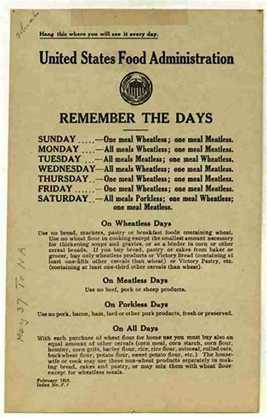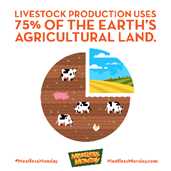By Erica Gicei, Park Technician
Our environment is constantly fluctuating around us; history has proven this to be true time and time again. While many of these changes are good, there are also many that are bad. We are becoming increasingly aware of the impact we, as humans, can have on this cycle. Coming to terms with the extent to which we have harmed our earth can be challenging. Many of the concerns that conservationists and environmentalists have can be difficult to conceptualize. However, in simply recognizing that there are things we can be doing differently, we can attempt to make changes to start minimizing our impact on our home planet.

Attempting to make drastic changes to your lifestyle can be intimidating. I still struggle with being eco-conscience in many aspects of my life. When I first started my journey towards becoming more conscientious of my habits and their ecological impacts, I found that making small changes to my lifestyle was manageable. One of the first steps I took was to slowly start eliminating meat from my diet. Eventually, I cut all seafood out as well. There are many health and ecological benefits to reducing your meat consumption. An effective way to start on the journey towards co-existing with nature is to participate in “Meatless Mondays”, which is now a nationally recognized green movement!
By participating in “Meatless Monday” and excluding meat from your diet one day each week, you can produce a positive impact on your health. Americans are the top per capita meat consumers in the world. Many Americans consume more than 1.5 times the average daily protein requirement. Excessive meat consumption, especially in red and processed meat, is linked to:
- Heart Disease
- Stroke
- Type 2 Diabetes
- Obesity
- Certain Cancers
You may be asking yourself, why does meat correlate to an increase in these health risks? There are a few reasons why:
- Meat, especially red meat, has a high saturated fat and cholesterol content
- Processed meat contains carcinogenic compounds
- Certain compounds found in red meat, such as “L-carnitine”, promote plaque build-up in arteries
- Meat has high energy density (high fat content), meaning there is a high amount of energy per weighted unit of meat
National dietary recommendations suggest reducing consumption of saturated fat, which is found highly in meat and animal products, by about 15%; this averages out to 1 day per week, making “Meatless Mondays” a perfect way to achieve this goal!
Participating in “Meatless Mondays” would not only benefit your own health, but also the health of our environment on which we rely greatly. Unfortunately, the production of animals for meat and associated products contributes significantly to ecological harm. Production, processing, distribution, and retailing of animal products creates about 9% of greenhouse gas emissions in the United States, and 15% of those worldwide. Animal production yields a highly inefficient use of water, putting strain on our increasingly depleting freshwater sources worldwide. About 27% of our global water footprint is attributed to meat and dairy production. For example, an estimated 1,600-2,500 gallons of water is needed to produce just one pound of beef. Animal waste from production facilities can pollute waterways, thus affecting aquatic life.

If every American (not even every person in the world!) stopped eating meat for just one day each week for a year…
- Around 100 billion gallons of water would be saved
- Around 70 million gallons of gas would be saved (enough to fill up every car in Canada and Mexico, and then some)
- Around 3 million acres of land would be saved (more than 2x the size of the state of Delaware)
- Around 1.4 billion animal lives would be spared, lowering the emission of greenhouse gases
- Individuals could save hundreds of dollars each year
There are many resources to turn to for approaching “Meatless Monday”, should you decide to participate. Johns Hopkins University has a plethora of information, as well as recipes, regarding this movement. Even a simple Google search can give you a lot of results. Listed at the end of this post are a few helpful resources, as well as some recipes. One of the best recommendations for approaching “Meatless Monday” is to remember to fill your plate with nutrient-rich plant foods, such as nuts, beans, leafy greens, and fruits.
Adapting to our ever-changing environment can be challenging. It is even harder when we cannot see the direct consequences of our actions, nor the immediate benefits of our reformations. Participating in “Meatless Monday” can benefit your health, as well as that of the environment, both of which are imperative in continuing our lives as humans on this earth!
“Meatless Monday” Recipes and Resources
Meatless Monday Recipes – Meatless Monday (mondaycampaigns.org)
Vegetarian Chili Mac (kristineskitchenblog.com)– One of my favorite meatless recipes; it’s very filling and delicious!
Meatless Monday Resources – Johns Hopkins Center for a Livable Future (jhsph.edu)
What If Everyone Stopped Eating Meat Once a Week? | Reader’s Digest (rd.com)





